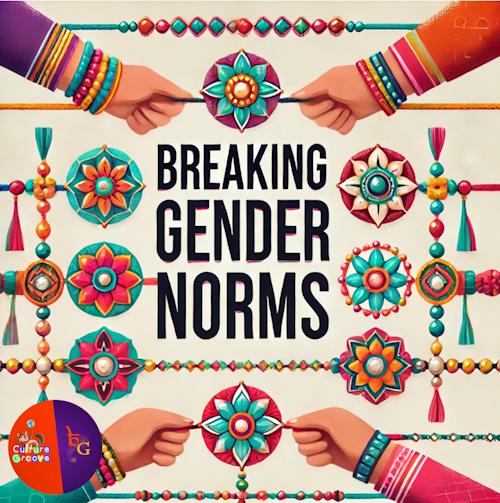
Growing up in a city steeped in gender bias, Raksha Bandhan always evoked a complex mix of emotions in me. From as early as age five, I began rebelling against the phrases “girls can’t do that” or “girls are weaker,” and the premise of Raksha Bandhan never sat right with me.
For those unfamiliar with the festival, Raksha Bandhan is an annual Indian celebration where sisters tie a decorative thread (Rakhi) around their brother’s wrist. The sister wishes for her brother’s long life, and in return, the brother promises to protect her. Protect. Only protect. Because, of course, she needs all the protection while he simply needs to live long 🙂
Looking at the stories associated with this festival, the same theme emerges repeatedly. The epic Mahabharata has a harrowing episode where Draupadi is protected by Krishna in a moment of crisis. The now-questioned story of Rani Karnavati being saved by Emperor Humayun follows the same pattern.
Efforts have been made to justify or tweak these narratives. “Ajanta, you are making a big deal out of it. Just think of it as a festival to celebrate the sibling bond,” people say. But then, why doesn’t the brother tie a Rakhi on his sister? Why don’t two brothers or two sisters celebrate it? Wouldn’t they also get a chance to showcase their love and care through this festival?
That’s where the idea for this book came about. The festival has such a wonderful overall sentiment. Why not extend it beyond gender norms? One of the main characters experiences this realization right in the book’s pivotal scene.
Don’t get me wrong—I am terrified. We are challenging the fundamentals of a centuries-old festival, and there is a significant chance we will face harsh criticism. But the desire and conviction to strip away the gender norms from a beautiful festival and transform it into the ultimate celebration of a loving bond triumphs every time.
#BreakTheBias #MayaNeelBooks #GenderNorms #NewBookRelease
#ModernTraditions #CelebrateLove #GenderEquality

